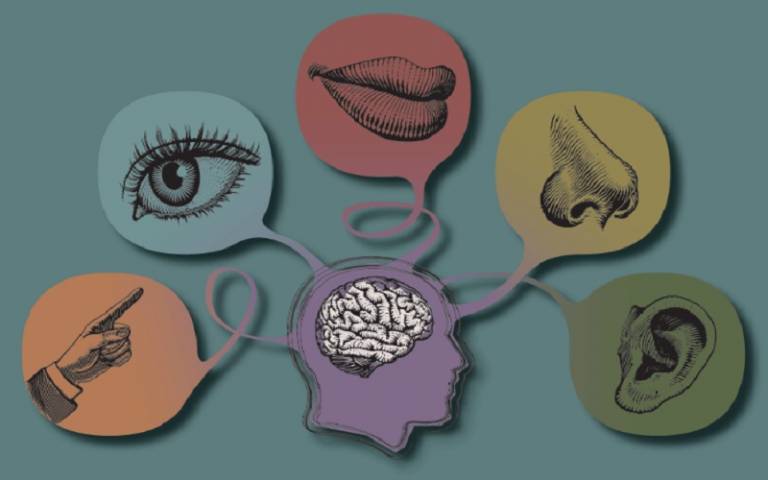How does information travel to our brain?
Thank you for the question.

13 September 2022
Your brain is thought to be the centre of your nervous system. It constantly collects information about your body, including things like what you see, hear, smell, and feel. It also constantly monitors the state of your muscles, your heart, and even the presence of specific substances in your blood. This happens because all over your body you have different types of sensing organs that specialise in the detection of these signals (like your eyes and ears). The information captured by these organs in the periphery of your body is then converted into electric signals which are sent to your brain via the nerves (you can read this Wikipedia page for more information). The nerves are collections of fibres that emerge from the cells that can carry the electrical signals from all over the body to the brain. There are various types of nerves, including nerves that are specialised in sending information from the skin and other sensory organs to the brain (also called afferent nerves), nerves that are specialised in sending information from the brain to the muscles (efferent or motor nerves), causing them to contract and relax so you can move, and nerves that are a mix of both (for more information on nerves you can go to this Wikipedia page).
Each of the fibres that compose a nerve emerges from a single cell, called neuron. Neurons have different structures to them specialised in sending and receiving electrical signals, namely the axon and the dendritic tree, respectively. The fibres that make up the nerves are axons, and they can be extremely long (the sciatic nerve in humans can be one meter long). The sensing organs are therefore single neurons or a collection of them, that detect these signals (e.g., light in the eyes, or pressure in the skin) in their dendritic tree, and then send electrical signals along the axons/nerve, all the way to either the spinal cord or directly to the brain. Your brain then uses this information to cause an effect, like moving an arm by contracting and relaxing muscles in a specific pattern.
In anatomical terms, the nerves are considered part of the peripheral nervous system, while the brain and spinal cord are part of the central nervous system. Interestingly, this division between peripheral and central is not applicable to all animals. The octopus for instance, which is considered a highly intelligent creature, does not seem to have what we traditionally consider a central brain. Instead, all along its bond, including tentacles, there are collections of neurons that deal with signals not just from the area around them, but also from other parts of their body. The way in which animals evolved different systems to respond to various types of signals from the environment is a riddle that many scientists are still trying to uncover.
Picture of the '5 Senses' courtesy of https://personalityjunkie.com/extraverted-sensing-se-vs-introverted-sensing-si/
 Close
Close


